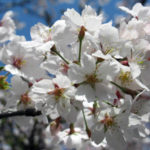2023-05-16 バージニア工科大学(VirginiaTech)
◆最近の研究では、特定の石鹸の香りが蚊の引き寄せや避けられる度合いに影響を与えることが明らかになりました。例えば、花や果物の香りの石鹸は蚊を引き寄せる一方、ココナッツの香りは蚊の魅力を減少させることがわかりました。
◆この研究によって、蚊に噛まれるリスクを減らすために特定の石鹸を使用することが可能であることが示されました。今後は、他の香りや製品も含めて、より具体的な研究が進められる予定です。
<関連情報>
- https://vtx.vt.edu/articles/2023/05/cals_mosquito_scent_preference_study.html
- https://www.cell.com/iscience/fulltext/S2589-0042(23)00744-7
石けんの使用で蚊と宿主の相互作用が変わる Soap application alters mosquito-host interactions
Morgen VanderGiessen,Anaïs K. Tallon,Bryn Damico,Chloé Lahondère,Clément Vinauger
iScience Published:May 10, 2023
DOI:https://doi.org/10.1016/j.isci.2023.106667

Highlights
•Soaps significantly alter the olfactory signature of human hosts
•Some soaps increase host attractiveness for mosquitoes while others reduce it
•Effects on mosquito attraction are linked to specific chemical compositions
•Artificial mixtures based on analytical results recapitulate the effect of soaps
Summary
To find nutrients, mosquitoes use volatile organic compounds (VOCs) emitted by plants and animal hosts. These resources overlap in their chemical composition, and an important layer of information resides in VOCs’ relative abundance in the headspace of each resource. In addition, a large majority of the human species regularly uses personal care products such as soaps and perfumes, which add plant-related VOCs to their olfactory signature. Using headspace sampling and gas chromatography-mass spectrometry, we quantified how human odor is modified by soap application. We showed that soaps alter mosquito host selection, with some soaps increasing the attractiveness of the host and some soaps reducing it. Analytical methods revealed the main chemicals associated with these changes. These results provide proof-of-concept that data on host-soap valences can be reverse-engineered to produce chemical blends for artificial baits or mosquito repellents, and evince the impact of personal care products on host selection processes.


